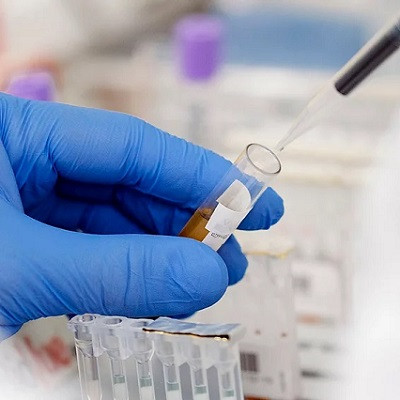
2021-01-29
Visited : 3158
ConserV Bioscience Limited (CBL) and Lawrence Livermore National Laboratory (LLNL) have agreed to collaborate on the development of a broad-spectrum or “universal” coronavirus vaccine.
This collaboration brings together CBL’s expertise in identifying antigens and LLNL’s nanolipoprotein delivery system. The vaccine has been designed to provide broad-spectrum protection against coronavirus pathogens of human and animal origin, including but not limited to MERS, SARS and SARS-CoV-2 (the virus that causes COVID-19).
The vaccine construct consists of conserved immunoreactive regions from external and internal coronavirus proteins, from each virus genus, encoded in messenger RNA (mRNA). The mRNA construct will be formulated with LLNL’s propriety nanolipoprotein particle vehicle (NLP) prior to injection, allowing freeze drying of both components separately to avoid cold chain storage and transport issues.
Coronaviruses are a group of single-stranded RNA viruses that, in humans, cause respiratory tract infections and other mild to lethal effects. In December 2019, a novel strain of coronavirus, SARS-CoV-2, was identified in Wuhan, China. To date, globally, more than 86 million people have been infected by the novel virus and approximately 1.8 million people have died from the infection.
Genomic analysis of SARS-CoV-2 indicates that the virus accumulates two mutations a month and, recently, variant H69/V70 has emerged in the United Kingdom that has significant mutations in the spike protein, drastically increasing its infectivity. Another variant originated in South Africa, 501.V2, which carries a mutation in the spike protein called E484K. This mutation has been shown to reduce antibody recognition and could therefore affect the efficacy of the licensed vaccines.
In 2003, more than 8,000 people were infected by SARS-CoV and at least 770 people died from the virus causing SARS. In 2012, MERS-CoV was first identified and outbreaks emerged in 2015 and 2018. To date, approximately 2,500 people have been infected and more than 850 people have died from MERS. Considering the zoonotic nature of the coronavirus family and the demonstrated pandemic potential, a broad-spectrum vaccine is a necessary next step to protect against continued mutations of SARS-CoV-2 as well as strains that jump from other host to humans or human strains that become more virulent and pose a pandemic threat.
CBL has a pipeline of eight vaccine candidates, including a broad-spectrum flu vaccine that is ready to enter Phase III trials to assess protective efficacy and safety. It also has a novel mosquito saliva vaccine that aims to protect against all mosquito-borne diseases that is ready to enter Phase II trials to obtain preliminary information about the vaccine’s ability to produce its desired effect and to continue to assess its safety.
“We are pleased to be working with the Biosciences and Biotechnology Division at LLNL to develop our broad-spectrum coronavirus vaccine candidate,” said Kimbell Duncan, CEO of ConserV Bioscience. “We have identified regions within the proteins of the virus that are not susceptible to change and if effective, the vaccine promises to protect against a broad spectrum of current circulating coronavirus strains and future emergent ones.”
Added LLNL biologist Amy Rasley: “We look forward to combining our nanolipoprotein particle technology with ConserV’s mRNA construct encoding conserved viral epitopes. We hope to advance the vaccine candidate to human trials as quickly as possible.”
Rasley’s fellow principal investigator on the project, Nicholas Fischer, noted: “Our NLP technology is very versatile, so we anticipate that we can tune our platform formulation to produce safe and effective vaccine candidates.” Other LLNL team members include Wei He, Matthew Coleman and Sandra Peters.
NLPs are water-soluble molecules that are 6 to 30 billionths of a meter in size and resemble HDL particles, which are associated with playing a role in regulating the human body’s good cholesterol. LLNL scientists are working to use this nanotechnology, also known as nanodiscs, as a delivery platform for tularemia and chlamydia vaccines that are under development.
About Lawrence Livermore National Laboratory
Lawrence Livermore National Laboratory, based in Livermore, California, is a government-owned facility that is part of the Department of Energy. Its mission is to strengthen U.S. security through the development and application of world-class science and technology. The Biosciences and Biotechnology division applies an understanding of fundamental biology to predict and counter emerging biological and chemical threats and to solve problems in health and environmental security.
About ConserV Bioscience Limited
ConserV Bioscience Limited, based in Oxfordshire, United Kingdom, is a late-stage vaccine development company focused on advancing safe and effective vaccines that protect against endemic and emergent infectious diseases. In addition to its “universal” coronavirus vaccine candidate, its pipeline includes vaccine candidates to protect against broad-spectrum influenza, mosquito-borne diseases, HIV, Hepatitis C, Hepatitis B, Rotavirus and Chagas.
Read the original article on Lawrence Livermore National Laboratory.